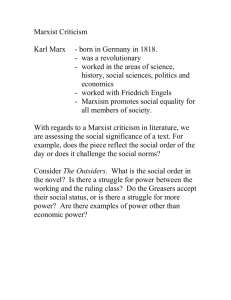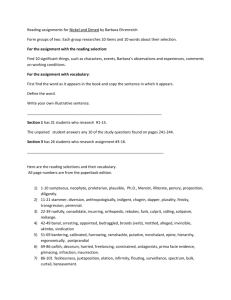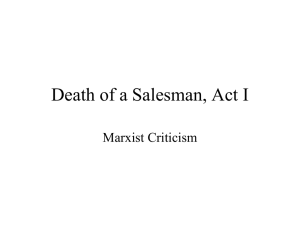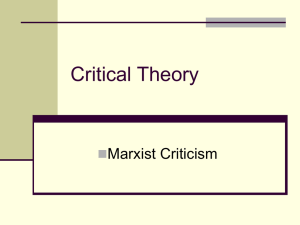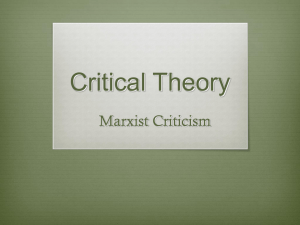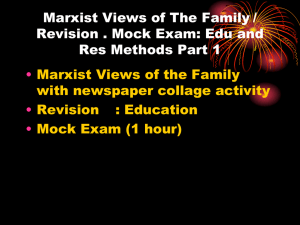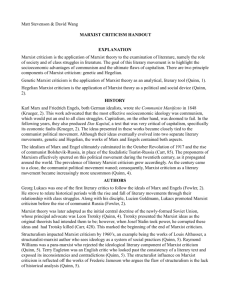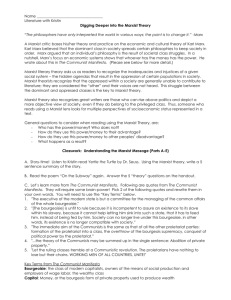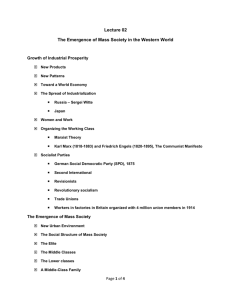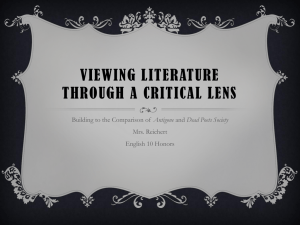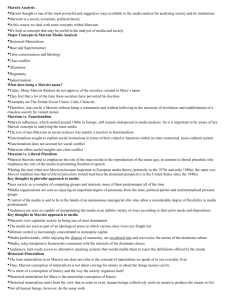FINAL Marxist handout
advertisement
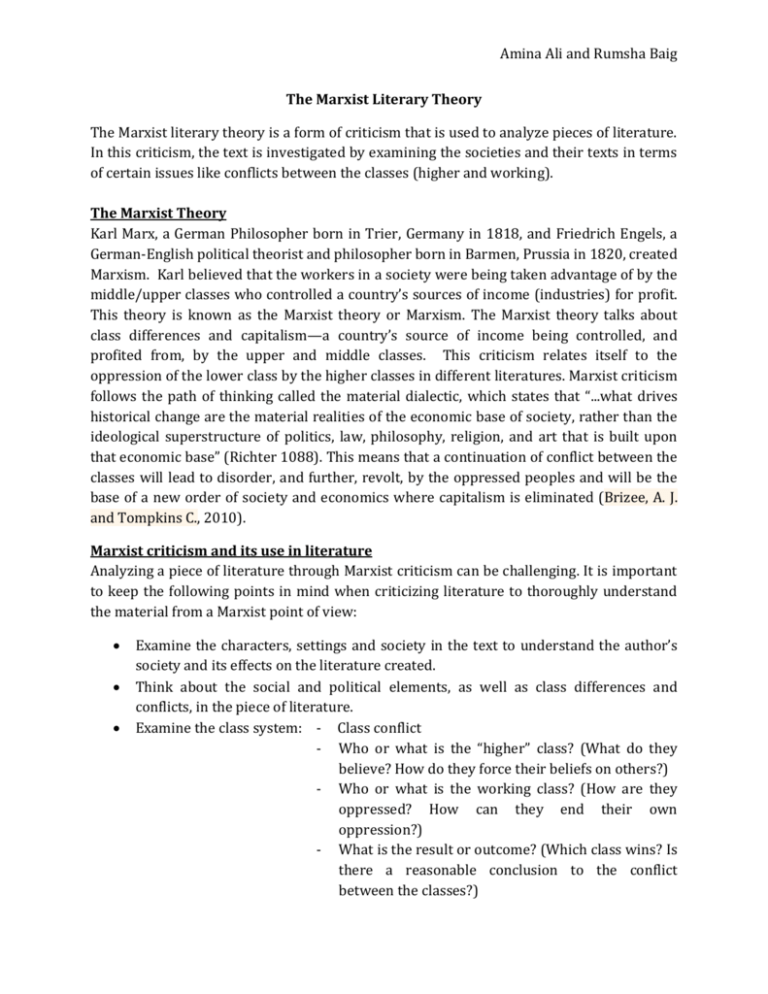
Amina Ali and Rumsha Baig The Marxist Literary Theory The Marxist literary theory is a form of criticism that is used to analyze pieces of literature. In this criticism, the text is investigated by examining the societies and their texts in terms of certain issues like conflicts between the classes (higher and working). The Marxist Theory Karl Marx, a German Philosopher born in Trier, Germany in 1818, and Friedrich Engels, a German-English political theorist and philosopher born in Barmen, Prussia in 1820, created Marxism. Karl believed that the workers in a society were being taken advantage of by the middle/upper classes who controlled a country’s sources of income (industries) for profit. This theory is known as the Marxist theory or Marxism. The Marxist theory talks about class differences and capitalism—a country’s source of income being controlled, and profited from, by the upper and middle classes. This criticism relates itself to the oppression of the lower class by the higher classes in different literatures. Marxist criticism follows the path of thinking called the material dialectic, which states that “...what drives historical change are the material realities of the economic base of society, rather than the ideological superstructure of politics, law, philosophy, religion, and art that is built upon that economic base” (Richter 1088). This means that a continuation of conflict between the classes will lead to disorder, and further, revolt, by the oppressed peoples and will be the base of a new order of society and economics where capitalism is eliminated (Brizee, A. J. and Tompkins C., 2010). Marxist criticism and its use in literature Analyzing a piece of literature through Marxist criticism can be challenging. It is important to keep the following points in mind when criticizing literature to thoroughly understand the material from a Marxist point of view: Examine the characters, settings and society in the text to understand the author’s society and its effects on the literature created. Think about the social and political elements, as well as class differences and conflicts, in the piece of literature. Examine the class system: - Class conflict - Who or what is the “higher” class? (What do they believe? How do they force their beliefs on others?) - Who or what is the working class? (How are they oppressed? How can they end their own oppression?) - What is the result or outcome? (Which class wins? Is there a reasonable conclusion to the conflict between the classes?) Amina Ali and Rumsha Baig Works Cited Abele, C.; Cronmiller, L.; DeZurik, A.; Hudson, H.; Marinos, D.; Ogborn M.; Pellicier, T. (1997). 1993 Hypertext database: Marxist criticism. Retrieved from, http://www.lawrence.edu/dept/english/courses/60a/marxist.html Brizee, A. J. and Tompkins C. (2010). Marxist criticism (1930s-present). Retrieved from, http://owl.english.purdue.edu/owl/resource/722/05/ Friedrich Engels. (2012). In Encyclopedia Britannica. Retrieved from, http://www.britannica.com/EBchecked/topic/187483/Friedrich-Engels Marvin, C. (2000). The window of philosophers. Retrieved from, http://www.trincoll.edu/depts/phil/philo/phils/engels.html .
